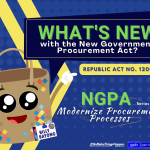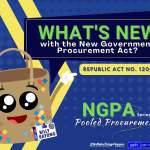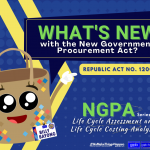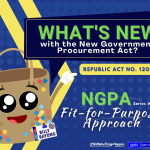The New Government Procurement Act (NGPA) or Republic Act 12009 underscores the critical importance of modernizing government procurement processes to ensure transparency, efficiency, and effectiveness in the utilization of public funds. The NGPA introduces the comprehensive implementation of Electronic Government Procurement, which encompasses the complete digitization and automation of the procurement process—from procurement planning to continue reading : Enhancing Procurement Efficiency and Transparency through Emerging Technologies under Republic Act 12009











